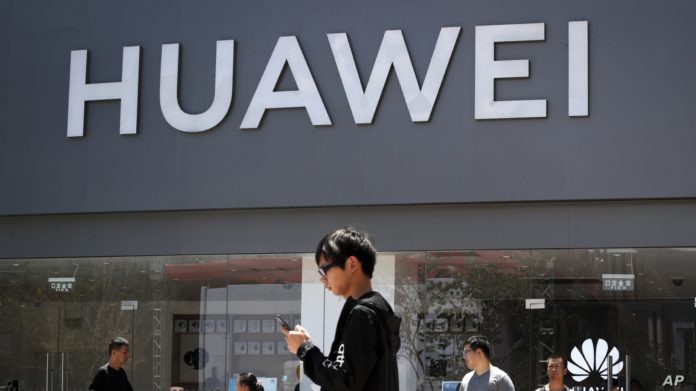National security hawks who normally side with U.S. President Donald Trump on foreign policy issues are up in arms over his announcement on Saturday that he would indefinitely delay the imposition of tariffs on $300 billion of Chinese goods and relax restrictions on U.S. firms doing business with Chinese telecommunications giant Huawei.
In a news conference Saturday that followed a bilateral meeting with Chinese President Xi Jinping at the Group of 20 summit in Osaka, Japan, Trump said: “U.S. companies can sell their equipment to Huawei. We’re talking about equipment where there’s no great national security problem with it.
‘Entity List’
This represents a sharp reversal by Trump, whose administration on May 16 added the company to the “Entity List” kept by the federal Commerce Department. Inclusion on that list is viewed as a sort of death penalty for foreign firms, because it prevents U.S. companies from doing business with them without express permission from the Commerce Department.
In an announcement at the time, the department’s Bureau of Industry and Security said, “The U.S. Government has determined that there is reasonable cause to believe that Huawei has been involved in activities contrary to the national security or foreign policy interests of the United States.”
The company has been caught stealing trade secrets, evading U.S. bans on transferring technology to Iran, and is suspected — though never proven — to be an arm of the Chinese intelligence services.
Wyoming Sen. John Barrasso, an ally of the president, appeared on NBC’s “Meet the Press” and told moderator Chuck Todd, “I’m very concerned about Huawei. I think they are a threat to our national security.”
Asked if he thought Trump had made a mistake, Barrasso said, “I know the president is a dealmaker. He is working on this. I would not allow Huawei, certainly, into our country. He’s making decisions about what our country and companies can sell overseas, to Huawei.
“To me, Huawei in the United States would be like a Trojan horse ready to steal more information from us,” he added.
There is an important distinction to be made in the discussions surrounding U.S. policy toward Huawei that often gets lost.
‘Back door’ access
A major concern that many in the national security field have is that if Huawei equipment is used to build new 5G mobile data delivery systems, the Chinese government might be able to pressure the company to give Beijing’s intelligence services “back door” access to secure U.S. systems. A law on the books in China requires private companies to assist the intelligence services on demand.
However, in moves that predate the Trump administration — and which were recently strengthened — the federal government had already taken steps to prevent telecommunications firms in the U.S. from deploying equipment made by Huawei. In fact, the government’s focus on information security with regard to Huawei has been more focused on trying to persuade strategic partners and allies that the U.S. shares intelligence with to blacklist the company in their own countries.
The changes Trump announced over the weekend are different: He suggested easing recently imposed restrictions on U.S. companies selling their goods to Huawei — particularly intermediate goods like computer processors, circuit boards and the like, that the Chinese company needs to build its phones and networking equipment.
Huawei’s inclusion on the Entity List barred it from purchasing key parts for its equipment and from licensing vital software, like Google’s Android operating system, which runs on all of the millions of smartphones that Huawei sells each year.



























